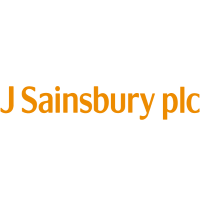London open: FTSE edges up; Direct Line surges after rejecting Aviva bid

London stocks edged up in early trade on Thursday, with Direct Line powering ahead after it rejected another takeover proposal, but trade was set to be quiet as US markets will be closed for the Thanksgiving holiday.
At 0825 GMT, the FTSE 100 was 0.2% firmer at 8,287.93.
Investors were mulling a survey which showed that UK consumer confidence remained largely unchanged following the Budget, weighed down by ongoing concerns about the strength of the economy.
According to the latest consumer sentiment monitor from the British Retail Consortium, expectations for personal finances over the next three months improved slightly, ticking up to -3 in November from -4 in October.
People also expected to spend more on retail over the next three months, with the measure rising to 3 from 2.
However, expectations for the wider economy weakened, easing two points to -19, while personal spending overall was unchanged at 17.
Helen Dickinson, chief executive of the BRC, said: “There was little shift in consumer confidence since the Budget, with many worried about the economy in the lead up to Christmas.
“While there was a very slight improvement in people’s expectations of their personal financial situation, this was offset by declining expectations of the wider economy.
“The last month clearly did little to shift the dial for households, either positively or negatively.”
Christmas is a crucial time for most retailers as consumer spending traditionally rises notably over the so-called golden quarter.
In equity markets, Direct Line surged more than 35% after it said late on Wednesday that it had rejected a £3.3bn takeover proposal from Aviva.
Aviva offered 112.5p per share in cash and 0.282 new Aviva share, valuing the group at 250p per share. This is a 59.7% premium to the closing Direct Line share price on 18 November, which was the day before the proposal was submitted.
Direct Line dismissed the offer as “highly opportunistic”, saying that it “substantially undervalued the company”.
Matt Britzman, senior equity analyst at Hargreaves Lansdown, said: “Direct Line is playing hard to get, again, as the board rejects a tentative takeover offer from Aviva on the grounds that the 250p per share on the table significantly undervalues the company.
“It’s not a clean offer; the 250p would be split half as cash and half as Aviva shares, which always makes things a little more complicated. Direct Line is no stranger to takeover offers, having rejected multiple attempts from Belgian insurer Ageas earlier in the year.
“There’s a case to be made that Aviva is a better suiter, given it already shares markets with Direct Line in the UK, but it’ll need to up its game – and its offer – if it wants Direct Line to take the proposal seriously.”
Admiral gained 3.4%, while Aviva was the worst performer on the top-flight index.
Spirax-Sarco shot to the top of the FTSE 100 after an upgrade to ‘outperform’ at BNP Paribas Exane and an initiation at ‘buy’ at Citi, which also started Smiths Group at ‘buy’ and Halma at ‘neutral’.
Sainsbury’s and Tesco were also high risers after double upgrades at JPMorgan Cazenove to ‘overweight’ from ‘underweight’.
Troubled footwear maker Dr Martens rallied as it said it swung to a loss for the half year but that trading since the start of the autumn/winter season had been “encouraging”, and held guidance for the 2025 fiscal year.
Pre-tax losses came in at £28.7m for the six months to September, compared with a £25.8m profit a year earlier. Revenue fell 18% to £324.6m.
On the downside, Imperial Brands, United Utilities, Severn Trent, Land Securities, 3i Group and Ithaca Energy all lost ground as they traded without entitlement to the dividend.
Tullow Oil fell sharply as it said it was on track to meet full-year production guidance but that free cash flow would be below previous guidance due to timing of payments.
Energean was also in the red even as it hailed “strong” third-quarter trading, with improved earnings and a jump in production, but also said full-year total production from continuing operations would be below previous guidance.
Food producer Cranswick was hit by downgrade to ‘sector perform’ from ‘outperform’ at RBC Capital Markets.
Top 10 FTSE 100 Risers
| Sponsored by Plus500 |
|
| # | Name | Change Pct | Change | Cur Price | |
|---|---|---|---|---|---|
| 1 |  |
Admiral Group Plc | +3.73% | +92.00 | 2,556.00 |
| 2 |  |
Jd Sports Fashion Plc | +3.20% | +3.25 | 104.90 |
| 3 |  |
Sainsbury (j) Plc | +2.76% | +7.00 | 260.40 |
| 4 |  |
Tesco Plc | +2.26% | +8.10 | 366.00 |
| 5 |  |
Aib Group Plc | +2.01% | +8.50 | 430.50 |
| 6 |  |
Barclays | +1.60% | +4.15 | 263.10 |
| 7 |  |
Legal & General Group Plc | +1.46% | +3.20 | 222.90 |
| 8 |  |
International Consolidated Airlines Group S.a. | +1.37% | +3.50 | 258.60 |
| 9 |  |
Prudential Plc | +1.30% | +8.40 | 655.00 |
| 10 |  |
Dcc Plc | +1.23% | +70.00 | 5,760.00 |
Top 10 FTSE 100 Fallers
| Sponsored by Plus500 |
|
| # | Name | Change Pct | Change | Cur Price | |
|---|---|---|---|---|---|
| 1 |  |
Aviva Plc | -2.19% | -10.70 | 478.60 |
| 2 |  |
Imperial Brands Plc | -1.90% | -50.00 | 2,585.00 |
| 3 |  |
Severn Trent Plc | -1.67% | -46.00 | 2,706.00 |
| 4 |  |
United Utilities Group Plc | -1.37% | -15.50 | 1,119.50 |
| 5 |  |
South32 Limited | -0.93% | -1.80 | 191.00 |
| 6 |  |
British American Tobacco Plc | -0.90% | -27.00 | 2,983.00 |
| 7 |  |
Haleon | -0.68% | -2.60 | 377.20 |
| 8 |  |
Bp Plc | -0.59% | -2.25 | 381.90 |
| 9 |  |
Coca-cola Hbc Ag | -0.56% | -16.00 | 2,834.00 |
| 10 |  |
Segro Plc | -0.48% | -3.80 | 784.80 |
US close: Stocks lower as traders thumb over multiple data points
Wall Street closed lower on Wednesday as market participants digested a slew of economic data, including the Federal Reserve’s preferred inflation gauge.
At the close, the Dow Jones Industrial Average was down 0.31% at 44,722.06, while the S&P 500 lost 0.38% to 5,998.74 and the Nasdaq Composite saw out the session 0.60% weaker at 19,060.48.
The Dow closed 138.25 points lower on Wednesday, reversing gains recorded in the previous session.
Wednesday’s primary focus was October’s personal consumption expenditures index, which revealed Americans continued to spend freely last month amid a slight pick up in price pressures. According to the Department of Commerce, personal consumption expenditures grew at a month-on-month pace of 0.4% in October and personal incomes by 0.6%. Economists had expected to see both rise by 0.3%. The rate of PCE growth for the prior month was revised higher by one-tenth of a percentage point to 0.6%.
The annual rate of increase in the headline PCE price deflator meanwhile rose from 2.1% for October to 2.3% in November, as expected. Core PCE inflation sped up by one-tenth of a percentage point to reach 2.8%, which was also as anticipated, while the personal savings rate improved from 4.1% to 4.4%. The PCE reading, closely watched by the central bank, will be key to investors who have hoped to gain some kind of insight into just what the Fed’s move may be at its December meeting.
Also making macro headlines, the Commerce Department revealed on Wednesday that the US economy expanded 2.8% in the three months ended 30 September, in line with preliminary estimates, on the back of solid strong consumer spending and increased exports. Q3’s GDP reading was down from Q2’s rate of 3% but still seemed to indicate that the US economy proved to be surprisingly durable throughout the period. The Commerce Department made slight downward revisions to consumer spending, government outlays and exports had been offset by upgrades to private inventory accumulation, business investment, as well as state and local government spending. Consumer spending, which makes up more than two-thirds of economic activity, grew at a 3.5% clip in Q3.
On another note, Americans lined up for unemployment benefits at a broadly flat pace in the week ended 23 November, according to the Labor Department. Initial jobless claims held steady at 213,000 last week, below expectations of a modest uptick to 216,000, extending the view that the US labour market remains at historically strong levels despite the Federal Reserve’s aggressive tightening cycle of recent quarters and giving the central bank space to slow the pace at which it loosens monetary policy. The four-week moving average, which aims to strip out week-to-week volatility, fell by 1,250 to 217,000, while outstanding claims rose to 1.90m in the week, the highest reading since November 2021.
Moving on, US mortgage applications surged 6.3% in the week ended 22 November, according to the Mortgage Bankers Association of America, building on the prior week’s 1.7% increase. Last week’s increase marked the sharpest increase in mortgage applications in two months, principally due to benchmark mortgage rates easing off somewhat. Applications to purchase a home soared 12% week-on-week, while those to refinance an existing home loan fell by 3% against the previous week.
Elsewhere, US wholesale inventories rose 0.2% month-on-month to $905.0bn in October, according to the Census Bureau, rebounding from the prior month’s 0.2% fall. Durable goods inventories went up 0.1% following a 0.6% decline in September, while non-durable goods stocks grew 0.4%, up from 0.3% a month earlier. On an annualised basis, wholesale inventories increased by 0.9%.
With durable goods in mind, new orders for US-made durable goods rose 0.2% month-on-month to $286.56bn in October, according to the Census Bureau, following a revised 0.4% decrease in September and falling short of expectations of 0.5% increase.
On another note, the Institute for Supply Management‘s Chicago purchasing managers index slid to 40.2 in November, down from 41.6 in October and falling short of forecasts of 44 to point to the 12th consecutive monthly drop and the steepest decline since May.
Finally, pending home sales increased 5.4% year-on-year in October, according to the National Association of Realtors, the biggest monthly gain since May 2021, following a 2.6% increase in September.
In the corporate space, Dell Technologies shares were lower after posting weaker-than-expected Q3 revenues, while shares in fellow technology giant HP also headed south after it issued soft Q125 earnings guidance.
Markets will be closed on Thursday in celebration of the Thanksgiving Day break and will close early on Friday.
Thursday newspaper round-up: Stellantis, The Observer, car production
The owner of Vauxhall told investors that it was “confident” it would meet the UK’s rules on electric vehicle sales just two months before it blamed them for the decision to close a factory in Luton, the Guardian can reveal. Stellantis cited the UK’s zero-emission vehicle (ZEV) mandate when it announced the closure of its van factory in Bedfordshire on Tuesday, putting 1,100 workers at risk of redundancy or relocation to its factory making smaller vans in Ellesmere Port. – Guardian
Not a single Whitehall department has registered the use of artificial intelligence systems since the government said it would become mandatory, prompting warnings that the public sector is “flying blind” about the deployment of algorithmic technology affecting millions of lives. AI is already being used by government to inform decisions on everything from benefit payments to immigration enforcement, and records show public bodies have awarded dozens of contracts for AI and algorithmic services. A contract for facial recognition software, worth up to £20m, was put up for grabs last week by a police procurement body set up by the Home Office, reigniting concerns about “mass biometric surveillance”. – Guardian
The proposed sale of The Observer to a loss-making start-up must be paused to protect Britain’s “fragile” liberal journalism, former Guardian editor Alan Rusbridger has said. Mr Rusbridger, who was editor-in-chief of The Guardian from 1995 to 2015, is one of six former editors to warn that the deal would result in The Observer being “cast off to an uncertain future”. – Telegraph
Car production in the UK has fallen for an eighth consecutive month, intensifying pressure on the industry as it struggles with the transition to an electric future. Manufacturing output declined 15.3 per cent in October to 77,484 units, figures from the Society of Motor Manufacturers and Traders (SMMT) show, leaving output down by a tenth so far this year. – The Times
Britain’s biggest wealth manager St James’s Place is in effect abandoning commercial property as an asset class after deciding to wind down three funds with £1.84 billion invested in office blocks, shopping centres and other real estate. The company, which manages investments for one million people in the UK, said the decision was taken after what it called “a challenging period for the sector as a whole”. – The Times

 Hot Features
Hot Features













